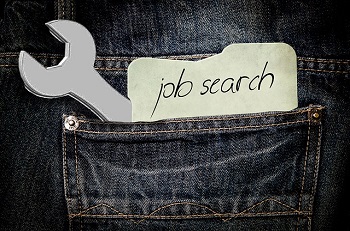Here it goes:
Create a good resume. It won't land jobs but it will open doors. It causes employers to trust you by seeing your track record.
A good resume is simple. It focuses on your accomplishments and includes action verbs that are relevant to the job.
A bad resume says, "Responsible for overseeing marketing projects."
A good resume says, "Led 6 multi-month market segmentation research projects, resulting in 3 mid size companies improving profit margins by 10-15% and in 3 start-ups growing revenue by 17+%
A bad resume says, "Responsible for..." and sounds generic
A good resume says, "Took action (with strong verbs and numbers: led, managed, developed, etc). Produced results (with specific numbers or before and after comparisons)."
Get talking to people. Applying to job postings just doesn't work most of the time. Plus it's super frustrating to spend countless hours searching, crafting cover letters and applying. And then hearing silence.
Here's how you can do better:
Some call it informational interviewing. I'll just say they're job search conversations. A job search conversation lasts 10-20 minutes. In it, you explain that you are exploring next steps in your career and are gathering information.
Then, you ask questions like, what have you enjoyed about your career? What kind of person thrives in this work and at this organization? What are the biggest challenges your group/organization is facing?
Always include two very important, questions. If you were in my shoes, what steps would you take? And: I really enjoyed this conversation. Could you recommend 1 or 2 other people I speak with?
In my experience, ~10% of job search conversations lead to at least an interview (much better odds than resume drops). And, you never have to ask for a job. (In fact I strongly advise against it.)
Setting up these conversations is also not that hard. To find contacts, search on LinkedIn, use a school alumni network, or ask family or friends for introductions to folks who you could learn from. (Remember, don't ask them to pass your resume along or ask for a job.)
Then reach out to these contacts, identify a point of commonality (a common school, a common acquaintance, etc) and ask for a quick conversation to learn about what they do (a 3 sentence email is fine). If they don't respond, follow up in a week's time.
Repeat this process of outreaches and conversations until you start getting interview invites.
Interview based on job fit. Once you've sparked their curiosity with your conversations and shown you've got skills with your resume, you'll start receiving interview invites.
The secret to interviewing is actually pretty simple. Identify exactly what the ideal hire looks like. Then prove how you match up to that ideal hire.
Show how your core talents and skills relate to what they need. And then back up your statements with specific stories and examples of your past accomplishments. (No, it doesn't have to be a perfect fit to land the job.)
Follow up. After the interview, send a thank you note within 12 hours. If you don't hear back as scheduled, call to find out what happened. And, reiterate your enthusiasm.
If you did get the job, make sure that the job offer is right for you before you take it. If you didn't get the job, ask this person to introduce you to more folks whom you can start a conversation with.
Take the right offer. You want the job offer to be the best one possible. So always ask for better compensation. After you get the offer, ask if they can improve your salary or benefits. Worst case they say no.
Best case you have improved your base salary for every year you work at that firm, plus your raises are bigger (5% of a bigger salary means a bigger raise). Oh yeah, if your next job then bases its salary on your previous salary, you'll make more money there too. All because you asked.
Even if the pay is great, make sure the job is what you want. Most people quit jobs because of their boss. So after you get the offer, speak to your future boss to find out what this person is like. Also, ask other people who have had this boss what was their experience.
In addition, make sure you understand what your work will actually be. Finally, make sure you feel comfortable with the culture and actually care about what the organization does. If it all seems good, then take the job!
Say Thank You. When you win that job offer, you will have gotten the support of a lot of family, friends and new colleagues. Let them know of your success, and say thanks for all of their help.
And don't forget. Reach out to these folks again just to say hi long before you are looking for your next job.


 If you don't have the interviews all lined up yet, here are some job search tips to help you get more interview invites.
If you don't have the interviews all lined up yet, here are some job search tips to help you get more interview invites.